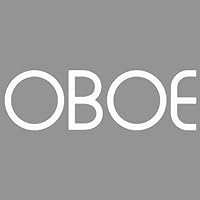How to choose a laptop for Data science and full stack python development students
Data science and full-stack Python development require a variety of software tools. For data science, popular choices include Python, R, or Julia, along with packages like NumPy, Pandas, and SciPy. Data visualization tools like Matplotlib, and Plotly, along with machine learning libraries like Scikit-Learn, and TensorFlow are also essential. Students must also work with databases such as MySQL, and MongoDB, and cloud computing platforms like AWS or Google Cloud Platform.
For full-stack Python development, use languages like HTML, CSS, and JavaScript, frameworks like Flask and Pyramid, and tools like Bootstrap and jQuery. Work with databases like MySQL and MongoDB, web services like REST APIs, testing libraries like unittest and pytest, and cloud platforms like AWS and Google Cloud.
While processing power is important when choosing a laptop for data science or full-stack Python development, other factors like handling large datasets, ample storage, and portability are also crucial.
Data science or full-stack Python development Laptop Specifications:
-
Processor and RAM
The processor and RAM are two of the most important components to consider when choosing a laptop for data science and full-stack python development. A powerful processor and ample RAM will allow you to run multiple programs and applications simultaneously without any lag. Therefore, a processor with a high number of cores and threads, such as the Intel Core i7-11700K or AMD Ryzen 7 5800X or above, would be a good choice. We recommend a processor that has at least 6 cores and 12 threads, a high single-core clock speed of at least 3.5 GHz, and a minimum of 16 GB of RAM.
-
Storage
In addition to a powerful processor and ample RAM, you will also need a laptop with plenty of storage. Data science and full-stack python development involve working with large data sets and files, so you will need a laptop with enough storage to store all your data. For the best performance, we would recommend a solid-state drive (SSD) with a capacity of at least 512 GB or higher. NVMe SSDs are faster than SATA SSDs and are ideal for data science and development workloads.
If you need more storage capacity, you can consider adding a secondary hard disk drive (HDD) for bulk storage, but be aware that it will be slower than the primary SSD. Alternatively, you could consider investing in a high-capacity external hard drive or a network-attached storage (NAS) device for backup and additional storage.
-
Graphics Card
A dedicated graphics card is not necessary for data science and full-stack python development, but it can be helpful if you plan to work with data visualization or machine learning tasks. If you plan to work with deep learning or artificial intelligence, a powerful graphics card can significantly speed up computations.
When it comes to machine learning frameworks such as TensorFlow and PyTorch, NVIDIA GPUs are widely considered the preferred option due to their superior support. For laptops with dedicated GPUs, the NVIDIA GeForce GTX or RTX series are particularly popular. Among these, the GTX 1650, GTX 1660 Ti, RTX 2060, and RTX 3060 are all capable GPUs that can proficiently handle most data science and full-stack Python development tasks.
-
Display
A high-resolution display is important for data science and full-stack python development because you will be working with complex code and data sets. A laptop with a resolution of at least 1920 x 1080 pixels and good color accuracy is recommended. Additionally, some laptops come with touchscreens or 2-in-1 functionality, which can be helpful for data visualization and design tasks.
When selecting a monitor for prolonged use, it’s important to consider features like anti-glare and eye protection, as you’ll likely be staring at the screen for extended periods. Specifically, look for monitors with blue light filtering capabilities, as this technology can effectively shield your eyes from harmful light emissions.
-
Battery Life
As a data science or full-stack python development student, you will likely be working on your laptop for extended periods of time. Therefore, you will need a laptop with a long battery life. Look for a laptop with at least 8 hours of battery life, so you can work all day without needing to recharge.
-
Portability
Portability is also an important factor to consider when choosing a laptop for data science and full-stack python development. You will likely need to take your laptop with you to class or work, so you will want a laptop that is lightweight and easy to carry. Look for a laptop that weighs less than 4 pounds and has a compact design.
-
Price
Finally, price is a crucial factor to consider when choosing a laptop for data science and full-stack python development. These fields require powerful hardware, which can be expensive. However, there are some affordable options available that still offer the necessary components for data science and full-stack python development.
The ideal laptops would cost above INR 90,000 offering a good balance of performance and portability.
In conclusion, choosing the right laptop is crucial for full-stack python development students and data science. Look for a laptop with a powerful processor and ample RAM, plenty of storage, a high-resolution display, long battery life, portability, and an affordable price. By following these tips, you can find the perfect laptop for your needs and set yourself up for success in these exciting fields.
 For data science and full-stack python development, one should look for a laptop like HP ZBook Firefly 15.6 (39.62cm) G8 Mobile Workstation PC, equipped with 11th Gen Intel Core i5 processor, 32 GB RAM, 1 TB SSD and NVIDIA T550 (4 GB GDDR6 dedicated) GPU. It has 16-inch WUXGA (1920 x 1200), IPS, anti-glare display and packed with features like HP Sure Click, HP Secure Erase, HP Sure Sense, HP Sure Start, HP Proactive Security (DaaS), HP Sure Recover and more. You can also look for HP Spectre 16-f2005TX, if you want a powerful solution powered by 13th Gen Intel Core CPU and Intel Arc GPU.
For data science and full-stack python development, one should look for a laptop like HP ZBook Firefly 15.6 (39.62cm) G8 Mobile Workstation PC, equipped with 11th Gen Intel Core i5 processor, 32 GB RAM, 1 TB SSD and NVIDIA T550 (4 GB GDDR6 dedicated) GPU. It has 16-inch WUXGA (1920 x 1200), IPS, anti-glare display and packed with features like HP Sure Click, HP Secure Erase, HP Sure Sense, HP Sure Start, HP Proactive Security (DaaS), HP Sure Recover and more. You can also look for HP Spectre 16-f2005TX, if you want a powerful solution powered by 13th Gen Intel Core CPU and Intel Arc GPU.
Compare the best laptops for python programming.























